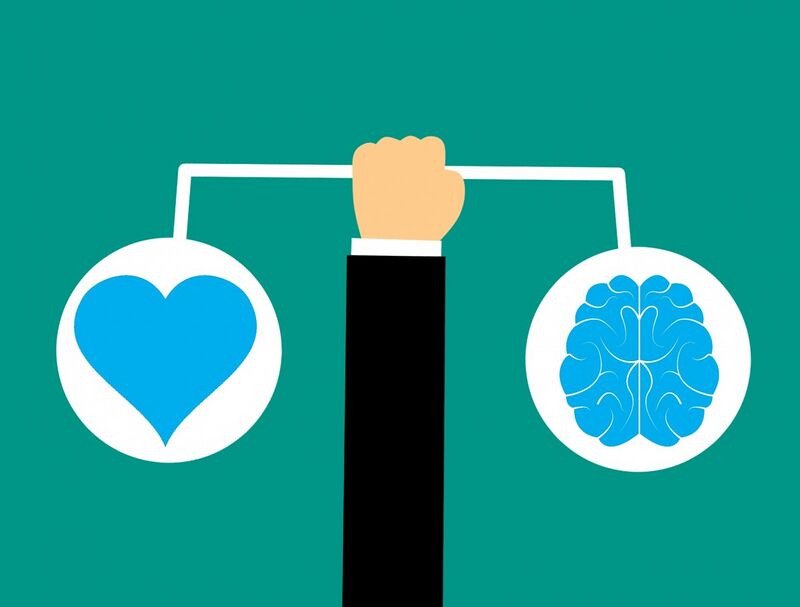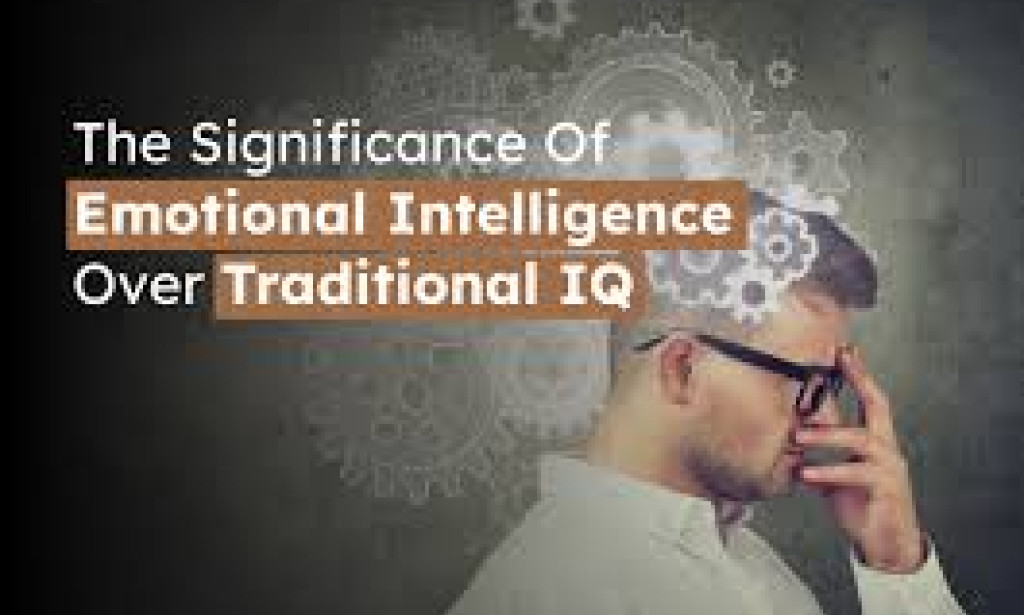INTRODUCTION:
Emotional intelligence (EI), often referred to as emotional quotient (EQ), is the ability to identify, understand, manage, and influence emotions—both your own and those of others. While IQ (intelligence quotient) has traditionally been considered the primary factor in success, emotional intelligence is increasingly recognized as a crucial component in fostering better health and building stronger, more meaningful relationships. This article explores why emotional intelligence is essential for both your personal well-being and your connections with others.
1. The Components of Emotional Intelligence
Emotional intelligence is typically divided into five core components:
- Self-awareness: The ability to recognize and understand your own emotions and their impact on your thoughts and behavior.
- Self-regulation: The ability to manage your emotions in healthy ways, particularly in stressful or challenging situations.
- Motivation: A passion to work for reasons beyond external rewards, driven by inner values and goals.
- Empathy: The ability to understand and share the feelings of others.
- Social skills: The ability to build and maintain healthy relationships, communicate effectively, and resolve conflicts.
Each of these components contributes significantly to personal health and the quality of relationships.
2. How Emotional Intelligence Impacts Health
Having a high emotional intelligence can have a profound effect on your overall health, both physically and mentally. Here’s how:
Managing Stress
High emotional intelligence helps you manage stress more effectively. Self-regulation—the ability to control emotional reactions—allows individuals to stay calm under pressure. Instead of reacting impulsively to stressors, emotionally intelligent people take a step back, assess the situation, and respond thoughtfully. This can prevent the physical effects of chronic stress, such as high blood pressure, anxiety, and weakened immune function.
- How It Helps: Reducing stress lowers the risk of heart disease, anxiety disorders, and depression. By practicing self-regulation, you can maintain a calmer, more balanced approach to life's challenges.
Improved Mental Health
Emotional intelligence enhances your ability to understand and express emotions healthily. By fostering self-awareness, emotionally intelligent individuals are more likely to recognize early signs of mental health issues, such as anxiety or depression, and take proactive steps to address them.
- How It Helps: Emotional intelligence promotes positive emotional expression and reduces emotional suppression, which is linked to better mental health outcomes, including lower rates of depression and anxiety.
Boosting Physical Health
When you can manage emotions effectively and maintain healthy relationships, your physical health is likely to improve as well. Emotional intelligence can lead to better lifestyle choices, such as regular exercise, healthier eating habits, and a commitment to self-care, all of which have a direct impact on overall health.
- How It Helps: By cultivating a healthy emotional state, you may engage in behaviors that prevent chronic diseases like diabetes, heart disease, and obesity. Additionally, emotionally intelligent people tend to sleep better, leading to improved energy levels and overall well-being.
3. Emotional Intelligence and Relationships
Relationships—whether romantic, familial, or professional—are central to our emotional well-being. High emotional intelligence can strengthen these relationships and lead to deeper, more meaningful connections. Here’s how emotional intelligence impacts relationships:
Improved Communication
Effective communication is key to any healthy relationship. Emotional intelligence helps people recognize the emotional needs of others and respond empathetically. This leads to more open, honest, and productive conversations. Furthermore, emotionally intelligent individuals are skilled at navigating conflict, knowing when to listen and when to speak, which leads to healthier communication patterns.
- How It Helps: Clear and empathetic communication strengthens trust, reduces misunderstandings, and promotes a deeper connection with others.
Empathy in Relationships
Empathy is a cornerstone of emotional intelligence. The ability to recognize and understand another person’s emotions allows you to respond in ways that demonstrate compassion and understanding. In relationships, empathy fosters a sense of connection and validates feelings, making others feel heard and respected.
- How It Helps: Empathy helps resolve conflicts, enhances emotional bonds, and promotes compassion and care, all of which are essential for maintaining long-term relationships.

Conflict Resolution
All relationships face challenges, but emotional intelligence provides the tools to handle conflicts constructively. Self-regulation and empathy allow individuals to manage their reactions, reducing the likelihood of escalation. Moreover, emotionally intelligent people can approach disagreements with an open mind and a focus on finding a resolution rather than winning the argument.
- How It Helps: People with high emotional intelligence are more likely to resolve conflicts in a healthy way, leading to stronger relationships and less emotional fallout.
Building Stronger Connections
People with high EI are skilled at reading social cues and understanding the emotional undercurrents of situations. This ability allows them to form deeper, more meaningful connections with others. They can sense when someone needs support or when to celebrate an achievement, helping to foster a supportive and caring environment.
- How It Helps: This emotional awareness and responsiveness build a foundation of trust, loyalty, and respect, which are key ingredients in any lasting relationship.
4. Emotional Intelligence and Social Health
Your ability to navigate social situations and engage with others plays a crucial role in your overall well-being. Strong social networks are linked to a longer, healthier life, and emotional intelligence helps foster these connections.
Creating a Supportive Network
Individuals with high emotional intelligence tend to attract people who value emotional depth, empathy, and effective communication. By cultivating these qualities, emotionally intelligent people can build strong social networks that offer support during tough times.
- How It Helps: A strong social network provides emotional support, helps reduce stress, and improves resilience, all of which contribute to better mental and physical health.

Enhancing Emotional Regulation in Social Settings
Social interactions often require us to manage our emotions, especially in tense or sensitive situations. Emotional intelligence helps people understand their own emotional responses in social contexts and manage them to maintain harmony. It also allows for more adaptive responses to the emotions of others, creating an environment where mutual respect and understanding prevail.
- How It Helps: By using emotional intelligence to navigate social settings, individuals are better equipped to form healthy relationships and minimize the negative effects of social stress.
5. How to Improve Your Emotional Intelligence
Improving your emotional intelligence requires self-awareness, practice, and a commitment to personal growth. Here are some steps you can take to boost your EI:
-
Practice Mindfulness: Mindfulness techniques, such as meditation or journaling, can help you become more aware of your emotions and thoughts. By regularly reflecting on your emotional reactions, you can learn to manage them better.
-
Seek Feedback: Ask for feedback from friends, family, or colleagues about how you handle emotions and interactions. Constructive criticism can provide valuable insights into areas for improvement.
-
Develop Empathy: Practice active listening and make a conscious effort to understand others' emotions. This will help you respond more empathetically and build stronger connections.
-
Learn Conflict Resolution Skills: Take courses or read books on conflict resolution to learn how to handle disagreements in a healthy and productive manner.

6. Conclusion
Emotional intelligence is a powerful tool for improving both your health and relationships. By developing EI, you can manage stress more effectively, improve your mental and physical health, and build stronger, more meaningful connections with others. Whether in personal relationships or professional settings, emotional intelligence plays a pivotal role in fostering empathy, resolving conflicts, and creating lasting bonds. Prioritizing the development of emotional intelligence can lead to a richer, more fulfilling life, marked by emotional well-being and stronger relationships.



You must be logged in to post a comment.